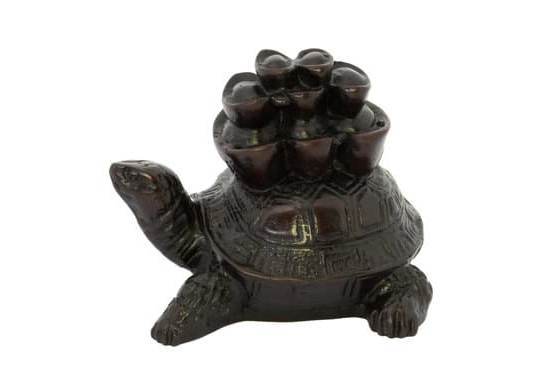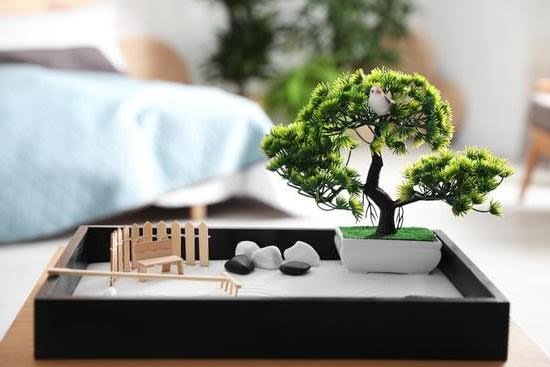Feng shui colors for bedroom walls play a crucial role in creating a harmonious and balanced space for rest and relaxation. In the practice of feng shui, the art of arranging the environment to promote positive energy flow, color is a key element in creating an optimal atmosphere for restful sleep and rejuvenation.
The bedroom is a sanctuary for rest and rejuvenation, and incorporating feng shui principles can enhance its ability to provide a peaceful and supportive environment. By understanding the influence of color on energy flow, one can create a space that promotes tranquility and balance.
In this article, we will delve into the significance of feng shui in bedroom decor and explore the profound impact of color psychology in creating an ideal sleeping space. We will also discuss top feng shui colors for promoting relaxation, tips for balancing the five elements with bedroom wall colors, as well as personalized color choices based on birth element.
Additionally, real-life case studies will provide insight into how thoughtful color selections can transform a bedroom according to feng shui principles. Stay tuned to discover how mindful color choices can harness positive energy in your bedroom decor.
Choosing the Right Feng Shui Colors for Bedroom Walls
When it comes to creating a harmonious and balanced space in the bedroom, choosing the right Feng Shui colors for the walls is essential. The colors we surround ourselves with have a profound impact on our emotions, energy levels, and overall well-being. In Feng Shui, color plays a significant role in creating a supportive and nurturing environment, especially in the bedroom where rest and relaxation are crucial.
To choose the right Feng Shui colors for your bedroom walls, it’s important to consider the specific energies you want to cultivate in this space. According to Feng Shui principles, different colors carry different energies and can affect us in various ways.
For instance, calming colors like blue and green are often recommended for bedrooms as they promote relaxation and tranquility. On the other hand, bold and vibrant colors like red or orange can stimulate passion and energy but may not be suitable for a soothing bedroom environment.
Incorporating a balanced combination of yin and yang energies is also vital when selecting Feng Shui colors for bedroom walls. Yin energy is passive, soft, and tranquil while yang energy is active, bright, and dynamic.
By balancing these two energies through appropriate color choices, you can create a harmonious atmosphere that supports both restful sleep and waking activities in the bedroom. When considering wall colors from a yin-yang perspective, it’s essential to strike a balance that promotes relaxation while still allowing for vitality and productivity in the space.
The Importance of Color Psychology in Feng Shui
Feng Shui, an ancient Chinese practice, emphasizes the importance of using the right colors in bedroom decor to create a harmonious and balanced environment. The colors we choose for our bedroom walls can significantly impact our mood, energy levels, and overall well-being. In Feng Shui, each color is associated with specific elements and energies, making it essential to understand the psychology behind these colors.
The use of feng shui colors for bedroom walls is rooted in color psychology, which explores how different colors can affect human behavior and emotions. For example, cool tones like blue and green are often recommended for bedroom walls as they are believed to promote relaxation and tranquility. On the other hand, warm hues like pink and peach can evoke feelings of comfort and security.
Incorporating feng shui colors in the bedroom can be a powerful way to promote a sense of balance and harmony in your living space. By understanding the psychological effects of different colors, you can create a bedroom environment that supports restful sleep, relaxation, and emotional well-being.
| Color | Effect |
|---|---|
| Blue | Promotes relaxation |
| Green | Elicits tranquility |
| Pink | Creates comfort and security |
Top Feng Shui Colors for a Relaxing and Restful Bedroom
When it comes to creating a relaxing and restful bedroom environment, choosing the right Feng Shui colors for your bedroom walls can make a significant impact. The use of Feng Shui in interior design focuses on the flow and balance of energy within a space, and color choice plays a crucial role in achieving this harmony.
Incorporating Feng Shui colors for bedroom walls involves understanding the principles of color psychology and how different hues can affect our mood and energy levels. According to Feng Shui principles, certain colors are believed to promote relaxation, tranquility, and restfulness, making them ideal choices for bedroom walls.
Here are some top Feng Shui colors for creating a calming and peaceful atmosphere in your bedroom:
- Soft Blues: Shades of blue such as light sky blue or aqua are associated with serenity and emotional balance.
- Subtle Greens: Pale greens like sage or mint can evoke feelings of calmness and connection to nature.
- Gentle Lavenders: Delicate shades of lavender or lilac are believed to promote a sense of peace and harmony.
- Neutral Tones: Soft neutrals like light gray, beige, or off-white can create a soothing backdrop for the bedroom environment.
By incorporating these Feng Shui colors into your bedroom walls, you can help promote restful sleep, reduce stress, and cultivate a relaxing atmosphere conducive to rejuvenation. Remember that personal preferences should also be taken into consideration when choosing bedroom wall colors based on Feng Shui principles.
How to Incorporate Yin and Yang Energies in Bedroom Color Choices
In feng shui, the concept of yin and yang energies plays a crucial role in creating a harmonious and balanced living space. This principle is also applied when choosing the right colors for bedroom walls to promote restful and rejuvenating sleep. Yin and yang energies are the two opposing but complementary forces that are essential in maintaining equilibrium in feng shui design.
When it comes to incorporating yin and yang energies in bedroom color choices, it’s important to consider the balance between passive (yin) and active (yang) energy. For example, using soft, calming colors like pastel blues, lavender, or light green can promote a more yin energy in the bedroom, creating a peaceful and nurturing environment conducive for rest.
On the other hand, incorporating brighter and more vibrant shades like coral, terracotta, or sunny yellow can bring a more yang energy into the space, promoting vitality and positive energy.
To achieve harmony in bedroom wall colors based on yin and yang energies, it’s essential to find the right balance between these two opposing forces. One common approach is to incorporate both yin and yang colors in the bedroom decor to create a sense of equilibrium. For instance, pairing soft blue walls with pops of vibrant red accents can help balance out the passive and active energies in the room.
The concept of yin and yang energies in feng shui color choices for bedroom walls goes beyond simply selecting paint swatches; it’s about creating an energetically balanced environment that supports overall well-being. By understanding how to incorporate these opposing forces into your color choices, you can create a restful sanctuary that promotes positivity and tranquility.
Tips for Balancing the Five Elements With Bedroom Wall Colors
Incorporating the five elements of Feng Shui into bedroom wall colors is a key aspect of creating a harmonious living space. The five elements – wood, fire, earth, metal, and water – each have corresponding colors that can be used to promote balance and positive energy in the bedroom.
Wood Element
The wood element is associated with growth, vitality, and health. To incorporate the wood element into bedroom wall colors, consider using shades of green and brown. These colors can create a sense of calm and renewal in the space, promoting relaxation and rejuvenation.
Fire Element
The fire element represents passion, warmth, and energy. To bring the fire element into bedroom wall colors, choose hues of red, orange, or vibrant pink. These colors can add a spark of excitement to the room while also promoting intimacy and vitality.
Earth Element
The earth element symbolizes stability, nourishment, and support. To embrace the earth element in bedroom wall colors, opt for muted tones of yellow or sandy beige. These warm and grounding colors can create a sense of security and comfort in the bedroom.
Metal Element
The metal element embodies clarity, precision, and strength. To integrate the metal element into bedroom wall colors, consider using hues of white or pastel shades. These clean and crisp colors can promote clarity of mind and a sense of purity within the space.
Water Element
The water element signifies fluidity, wisdom, and tranquility. To infuse the water element into bedroom wall colors, choose cool tones of blue or black. These calming colors can evoke feelings of serenity and mental relaxation in the bedroom.
By incorporating these elemental color choices into bedroom walls according to Feng Shui principles, it is possible to create a balanced and nurturing environment that promotes overall well-being and positive energy flow throughout the space.
Incorporating Personalized Feng Shui Color Choices Based on Birth Element
Understanding the Five Elements and Birth Element
In Feng Shui, the concept of the five elements (wood, fire, earth, metal, water) plays a crucial role in determining personalized color choices based on an individual’s birth element. Each person is associated with one of these elements based on their birth date and time, and this element influences their personality traits, preferences, and energy.
For example, someone born in a Wood year might be drawn to green or brown tones, while a Fire birth element may resonate with red or fiery orange hues.
Matching Colors to Birth Elements
Once you have identified your birth element according to the Chinese zodiac and lunar calendar, you can then select bedroom wall colors that align with your elemental preferences. For instance, individuals with a Metal birth element may find peace and balance in white or pastel shades, while those connected to the Water element might feel most harmonious surrounded by blue or black tones.
By understanding your birth element and its correlation to specific colors, you can incorporate personalized Feng Shui color choices that promote positive energy flow within your bedroom space.
Creating Harmony and Balance
By consciously incorporating Feng Shui colors for bedroom walls based on your birth element, you can create a sense of harmony and balance within your personal sanctuary. These tailored color choices not only reflect your individual energy but also contribute to enhancing the overall flow of chi (life force) in the room.
Whether it’s deepening relaxation through calming hues or fostering creativity with vibrant tones, personalized Feng Shui color selections based on birth elements can have a profound impact on both physical and emotional well-being.
Case Studies
One of the most intriguing aspects of Feng Shui is its ability to completely transform a space, including the bedroom, through color choices. By incorporating the right colors in bedroom walls, individuals can experience a significant shift in the energy and atmosphere of their sleeping quarters. In this section, we will explore real-life examples of how individuals have utilized Feng Shui principles to transform their bedroom wall colors and the impact it has had on their overall well-being.
In one case study, a couple struggling with insomnia and frequent arguments decided to consult a Feng Shui expert for guidance. After assessing their bedroom layout and personal birth elements, the expert recommended painting their bedroom walls a soft, soothing blue color. The calming effect of the blue hue helped promote relaxation and communication between the couple, leading to improved sleep patterns and a more harmonious relationship.
Another example involves a single professional who was feeling stagnant and uninspired in her career. Upon consulting with a Feng Shui practitioner, she learned that her bedroom wall color was contributing to her lack of motivation. By incorporating energizing feng shui colors for bedroom walls such as vibrant reds and fiery oranges, she was able to create a more dynamic and stimulating environment that positively impacted her work performance.
In yet another case study, a family looking to enhance their overall sense of well-being decided to revamp their master bedroom using Feng Shui principles. By embracing earthy tones like soft greens and warm browns on their walls, they were able to create a grounding and nurturing space that fostered feelings of security and stability for both the parents and their young children.
These real-life examples demonstrate the profound impact that mindful color choices based on Feng Shui principles can have on one’s living space.
Conclusion
In conclusion, the practice of feng shui and its influence on bedroom decor cannot be underestimated. The careful consideration of colors for bedroom walls can greatly impact the energy and atmosphere of the space, ultimately affecting the quality of rest and relaxation experienced within. By understanding the principles of color psychology and their application in feng shui, individuals can make informed decisions to create a harmonious and balanced environment in their bedrooms.
The importance of choosing the right feng shui colors for bedroom walls lies in their ability to promote a sense of calm, balance, and rejuvenation. Whether it’s incorporating yin and yang energies, balancing the five elements, or personalizing choices based on birth element, there are various ways to achieve a restful and relaxing bedroom through mindful color choices. The use of calming blues or soothing greens, for example, can evoke a sense of tranquility and promote better sleep quality.
Real-life case studies have shown how intentional changes in bedroom wall colors according to feng shui principles have positively impacted individuals’ well-being. These examples serve as testament to the transformative power of mindful color choices in creating a nurturing and supportive environment for rest and relaxation. Ultimately, when approached with mindfulness and an understanding of feng shui principles, selecting the right colors for bedroom walls can harness positive energy and contribute to overall health and well-being.
Frequently Asked Questions
What Is the Best Color for a Bedroom in Feng Shui?
In feng shui, the best color for a bedroom is typically a soft, calming hue such as light blue, pale green, or even a subtle lavender. These colors are believed to promote relaxation and restful sleep, creating a harmonious environment.
Which Colour Is Lucky for Bedroom?
According to feng shui principles, the lucky color for a bedroom can vary based on an individual’s birthdate and their specific energy needs. However, in general, shades of green and blue are often considered lucky for bedrooms as they represent growth, renewal, and tranquility.
Which Wall Color Is Best for Bedroom?
The best wall color for a bedroom according to feng shui often depends on factors such as the room’s orientation and the occupants’ energy needs. Generally speaking, soothing colors like soft blues, greens, or muted earth tones are recommended to create a peaceful and nurturing atmosphere conducive to rest and relaxation.

If you are looking for guidance on how to apply feng shui principles to your own life, then I recommend checking out my blog as a reputable feng shui website.





